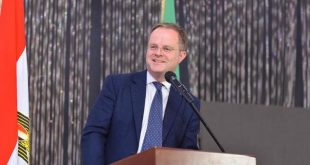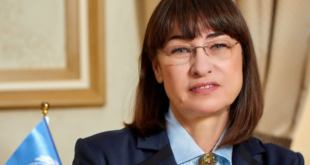In the dusk of neoliberalism, a new narrative is needed to untangle the moral and political trade-offs of our times.
Piergiuseppe Fortunato*
On May 4th 1979, Margaret Thatcher entered 10 Downing Street in London as a British prime minister. The time had finally come to put into practice her political philosophy, prioritising private interests and markets over society and the state. As she had put it 11 years earlier in the wake of the May ’68 explosions, ‘the way to get personal involvement and participation is not for people to take part in more and more government decisions but to make the government reduce the area of decision over which it presides’.
Her words found an echo across the Atlantic on January 20th 1981. In his inauguration speech as United States president, Ronald Reagan said: ‘It is no coincidence that our present troubles parallel and are proportionate to the intervention and intrusion in our lives that result from unnecessary and excessive growth of government.’
The elections of Thatcher and Reagan marked the definitive affirmation in Western democracies of neoliberalism, an ideology which gained traction in response to the crises of the 1970s and the long series of economic shocks which progressively unsettled the post-war policy consensus, around Keynesian demand management, and triggered political strife. Part of the reason for the neoliberal takeover was the striking simplicity of its core message: everything has a price and, if markets are freed to determine that price, prosperity and social harmony will follow.
Bretton Woods institutions
This vision, which entailed a shrinkage of government economic activity through privatisation and fiscal austerity but also inflation targeting and tight monetary policy, was extended to the post-war Bretton Woods institution—the World Bank and the International Monetary Fund—headquartered in Washington. The debt crisis of the early 1980s triggered substantial loss of policy autonomy for developing countries obliged to seek help: if they wanted further aid, they had to accept the ‘Washington consensus’. Western capitalist economies, which held the lion’s share of votes on the boards of these institutions, were consequently strengthened.
Shortly thereafter, they were further buttressed on the international scene. By 1988 reformers inside the Hungarian government had decided to open the country’s border to the West. Czechoslovakia followed months later, and, by the end of 1989, the Berlin wall was open. The ‘iron curtain’, the political boundary dividing Europe into spheres of influence since the end of World War II, had collapsed, paving the way for the decomposition of the Soviet Union and the West’s final victory in the cold war, saluted as the definitive triumph of ‘free-market’ capitalism.
In the short lapse of a decade, not only had the neoliberal model of Thatcher and Reagan prevailed in the West. The global opposition to it from developing economies—which had tried in vain to re-equilibrate North-South relationships at the 1981 United Nations summit in Cancun—and from the Soviet Union had been almost completely dismantled.
‘Shock therapy’
The completeness of the victory turbo-charged the neoliberal dynamic and even inspired Russian political liberals to adopt the ‘shock therapy’ advocated by the west: rapid privatisation and massive deregulation. Combined with gargantuan corruption, the dramatic collapse of the Soviet single market and lack of much-needed external financial support had a shattering effect on industry and the living conditions of ordinary Russians. The despair that followed would underpin local autocrats who turned dissatisfaction with Western-sponsored policies into a nationalistic revival.
Within Western democracies, critical voices were marginalised or drowned out by the ‘there is no alternative’ assertion with which Thatcherism became associated. It was thus that neoliberalism was normalised. It persisted beyond its founding personalities and became so hegemonic that the other side of the political spectrum adopted it.
With Bill Clinton’s US presidency in the 1990s the Democrats became a party of fiscal rectitude and trade globalisation, and in the United Kingdom Tony Blair’s ‘new’ Labour fully embraced the cause. “I hear people say we have to stop and debate globalisation. You might as well debate whether autumn should follow summer,” Blair famously told the 2005 party conference.
Footloose capital
It was under the patronage of the Clinton administration that the trade round with the biggest negotiating mandate ever was successfully concluded at Marrakesh with the creation of the World Trade Organization (WTO). Taking advantage of their dominant position on the global scene, Western economies had managed to extend the neoliberal model to regulate relations between countries through ‘liberalising’ trade and capital flows.
This was in a context where strong domestic regulation of health, the environment and industry had come to be widely perceived as a barrier to the efficient allocation of resources (although, perversely, weak regulation of ‘intellectual property rights’ was deemed to have the same effect). Such regulation was therefore banned or restricted, through rules encoded in the initial WTO agreements and a plethora of bilateral and regional treaties under a ‘WTO-plus’ umbrella.
Over the last two decades, as now footloose capital and firms have moved investment and production around the globe, the bargaining power of capital has increased greatly compared with that of labour. This has allowed corporations to repress wages and working conditions in developed and developing economies. Extremes of inequality within and between countries have hit grotesque heights. Ineffective antitrust legislation, excessive intellectual-property protection and aggressive merger-and-acquisition strategies have favoured corporate rent-seeking and the attainment of unprecedented market concentrations in financial and other sectors.
Meanwhile, investment in public goods, at the global as well as the national level, has stagnated. Growth has become dependent on pushing up debt and the pace of resource extraction and energy consumption, such as to threaten the survival of the planet itself.
Winner takes all
A few numbers dramatize the scenario. Winners are taking the most: in the early 1990s, the market capitalisation of the world’s top 100 firms was 31 times that of the bottom 2,000; 20 years on this multiple had soared to 7,000. The top 1 per cent has captured 27 per cent of income growth since 1980, the bottom half of the income spectrum only 12 per cent—and that debt-inflated. Developing countries (excluding China) face total repayments on sovereign bonds of $936 Billion to 2030. Resource extraction has more than tripled since 1970, including a fivefold increase in the use of non-metallic minerals and a 45 per cent rise in fossil-fuel use. The richest 10 per cent of the world’s population is responsible for over half of global emissions while the poorer half accounts for only 10 per cent. And, of course now, the war in Ukraine is placing further strain on a battered world.
War, climate, trade and debt—these are global challenges which no country, no matter its economic or military strength, can tackle in isolation (as the United Kingdom, having forsworn Thatcher’s support for the single European market, is discovering). The pandemic was just a trial-run and, if its management be a measure of whether we have a global architecture able to combat the more demanding tests of the future, there is not much to be cheery about.
That global architecture reflects the latest mutation of neoliberalism. This is a less triumphalist, technocratic version which essentially holds nevertheless that the system is neither broken nor flawed and that problems are not a function of any moral or political conflict—but there are some technical problems which require technical solutions.
Immense challenges
This can hardly facilitate the resolution of the many trade-offs ahead: geopolitical stability versus national self-determination, production-based v consumption-based emission targets, gains from trade v fair distribution of benefits, a level playing-field v regulatory diversity and so on. Facing such immense challenges and finding shared solutions relies on a recreation of the trust, fairness and justice on which international co-operation relies.
That requires the governments of the leading world economies—which as 40 years ago in Cancun remain mostly western capitalist democracies—to be willing (and able) to deploy a comprehensive global recovery plan. This should be built around a co-ordinated macroeconomic expansion, focused on job creation and higher wages, and supported by a big public-investment push into cleaner energy, environmental protection, sustainable-transport systems and the care economy.
As stressed by the United Nations Conference on Trade and Development (UNCTAD), bold reforms would be needed to sustain such a plan. These would include completion of the Doha WTO development agenda to recover trust in the international trading system, stronger international competition laws to clamp down on corporate rent-seeking, an independent global debt authority and an international public credit-rating agency.
Turning the page also demands a new, post-neoliberal narrative. This would not be economically egoistic but would consider the moral and political ramifications of economic relationships. It would consider global equality, balanced trade and sustainable climate and biodiversity as inalienable global public goods. Such an enveloping narrative is crucial, to achieve and cohere concrete advances and to render the multilateral governance system fit for purpose.
*The writer is an economist at the United Nations Conference on Trade and Development, where he leads projects on global value chains and economic integration. He is also an external professor of political economics at the Université de Neuchâtel.
From: Social Europe.






